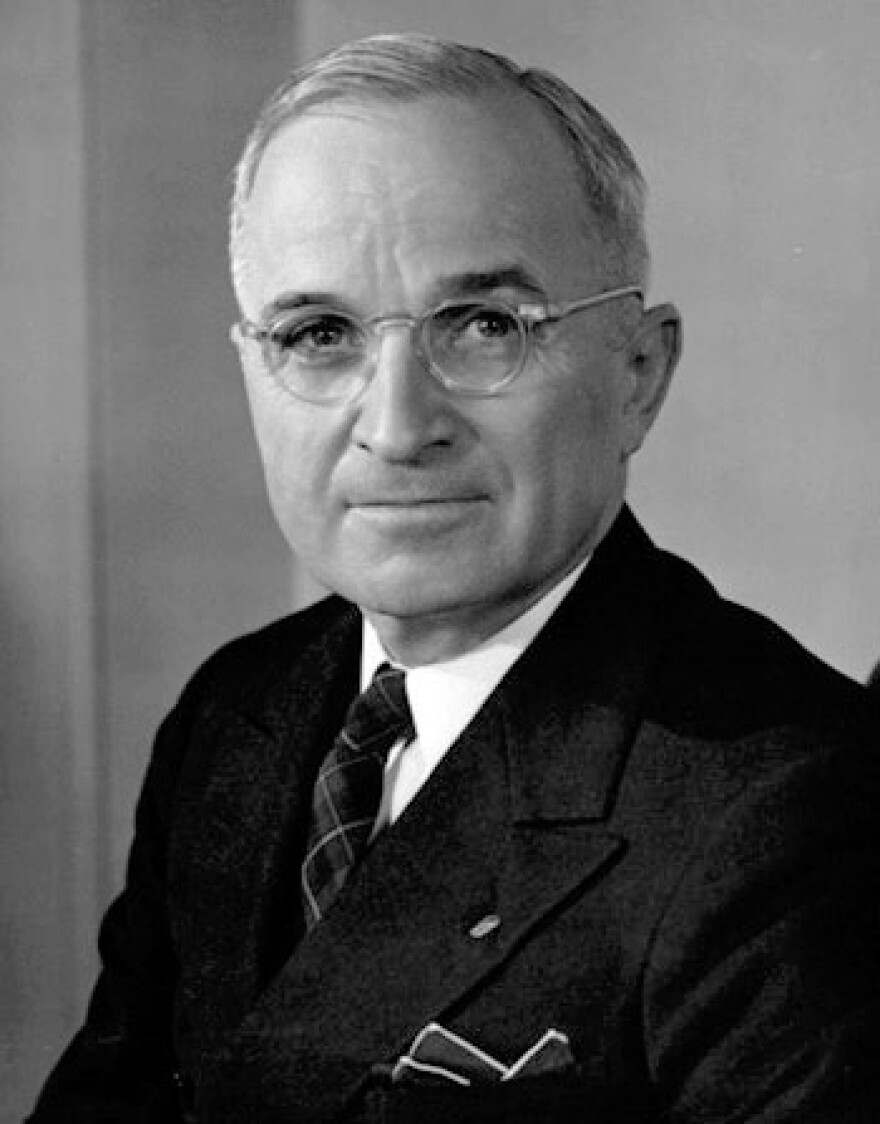On July 15, 1948, President Harry S. Truman received the Democratic nomination for president – hardly an upset as he was already president. He took his first oath of office on April 12, 1945, following the death of President Franklin Delano Roosevelt.
Truman’s entrance to politics, however, hardly suggested a rise to the presidency. He grew up on a farm, worked as bank clerk and ran a men’s clothing business that failed. After that, politics looked like the only good career option.
At that point, political boss Tom Pendergast largely ran Kansas City politics.
“The type of politician that Tom Pendergast was is sort of a lost art in 21st century America,” said William Worley, a history professor at Metropolitan Community College in Kansas City, who has focused on the lives of Truman and Pendergast.
Pendergast was one of many political bosses across the country in the late 19th and early 20th centuries – though few were as effective. He inherited a strong organization from his older brother and, by the early 1930s, controlled not only Kansas City and Jackson County, but also had influence in the State House in Jefferson City.
“Political bosses worked with the lubricant of money,” said Worley. It took money to hire or pay off the people needed to deliver the votes. Worley said Pendergast got his money largely through protection schemes. He controlled the police department in Kansas City, particularly during Prohibition, and, if paid protection money, ensured citizens could do business as they saw fit.
“He seems to have gotten, among other things, a good deal of personal satisfaction,” said Worley. Pendergast was incredibly proud of helping people find work and helping them survive in extremely difficult times. He saw himself as “for the little guy.” Worley points to what is called “Pendergast Prosperity” in Kansas City: from about 1930 until his downfall in 1939, Kansas City did not feel the effects of the Great Depression quite as strongly as the rest of the nation.
Truman’s Connection
After Truman graduated from high school, his family moved to Kansas City and settled across the street from Tom Pendergast’s brother, Mike. Truman gained another connection to the family when he became good friends with Jim Pendergast, Mike’s son, while serving in the army during World War I.
With Truman’s business failing, Tom Pendergast and his nephew, Jim, went to Truman and asked him to run for western judge of the Jackson County Administrative Court, an administrative position along the lines of a county commissioner. Truman served a total of 10 years on the Jackson County Administrative Court in various positions.
Truman the Politician
“Truman was an absolute realist when it came to politics,” said Worley. “He knew that you had to build coalitions, that you had to get support from groups you sometimes might not altogether agree with,” said Worley. On the Administrative Court, Truman developed “a reputation of being a straight shooter, being an honest leader.” Truman was a man of his word, but Pendergast did not get his word very often. He was valuable because he gave Pendergast an impression of legitimacy.
In 1934, Truman wanted to move on to county collector; Pendergast, however, already had offered that seat to someone else and suggested a U.S. Senate seat instead.
“There is no question that in 1934 there was fraudulent voting done in Kansas City and Jackson County and that’s almost certainly what provided the winning margin,” Worley said.
In fact, after Truman’s first speech on the Senate floor, Louisiana Sen. Huey Long stood up and “very loudly proclaimed that he wanted to welcome the senator from Pendergast,” said Worley. “He was seen as a product of the machine and, from an electoral standpoint, that would be accurate statement. From the way he did business, that would be another story.”
Pendergast’s help ended in 1939 when he served a yearlong sentence at Leavenworth Federal Penitentiary for tax evasion and lost much of his influence.
During Truman’s 1940 run for Senate, his opponents largely ran on Pendergast’s conviction. Instead of receiving help from his connection, Truman needed to distance himself, which he did by moving his campaign office to Sedalia and avoiding any mention of Pendergast.
Pendergast died in 1945, just days after Truman took office as vice president.
St. Louis on the Air provides discussion about issues and concerns facing the St. Louis area. The show is produced by Mary Edwards and Alex Heuer with assistance from Amanda Honigfort. It is hosted by veteran journalist Don Marsh.


